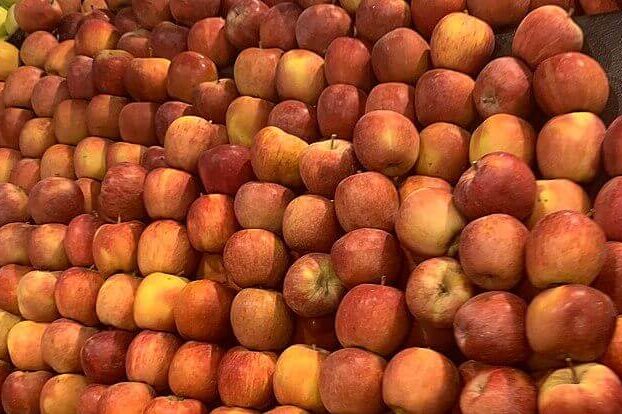
Experts warn that a breakdown in the climate could cause British apples to disappear.
As domestic species are threatened by rising temperatures, Japan’s Fuji and New Zealand’s gala may take their place.
Because of the breakdown of the climate, traditional fruits are no longer viable. As a result, varieties from New Zealand and Japan may replace traditional British apples.
Apples like Pippin and the ancient nonpareil, which have been grown in Britain since the 1500s, are struggling in the new climate because the trees don’t get enough “chilling hours” to go into winter dormancy and save energy for fruit production.
A third of the 40 apple trees being planted by scientists at Kew’s Royal Botanic Gardens are heritage varieties that were once found in the garden’s Georgian kitchens. The final third comes from warmer countries like South Africa and is made up of new varieties that have been bred to require less cold during the winter. In light of the warm temperatures in London, the varieties will be compared to see which produces the best crops.
The Met Office announced in January that 2022 had been the sixth warmest year on record, and it appears that 2023 will also break records. However, apple trees are struggling because they require a period of cold during the winter, despite the fact that many crops are affected by the summer’s intense heat and drought.
They store enough energy in the fall to get them through the winter dormancy and then start working again in the spring. The ideal chilling hours for apples are those that are below 6 degrees Celsius but above freezing. The majority of traditional apple trees require approximately 1,000 chilling hours. They must breathe if temperatures exceed 6 degrees Celsius, draining their energy reserves for the winter. This reduces the amount of energy available in the spring, resulting in fewer apples growing.
New Zealand grows a lot of Gala apples, but Kew’s kitchen garden manager Helena Dove thinks the breed may take over traditional varieties in Britain.
“The Gala was bred in New Zealand, which means it only needs about 600 chilling hours, which is more like what we’re getting at the minute in the UK,” she explained.
“We will see if gala has a better crop than nonpareil, which was bred in 1696. We are also trying the Fuji apple, which originated in Japan and only needs 400 chill hours, which might do better in these milder winters.”
When some of the most beloved heritage varieties of British apple were bred, she said: “We had these lovely cold winters, which we aren’t getting any more.”
Dove hopes to produce a crop in three years and present the industry with some preliminary findings then. She hopes that this research will help the industry because farmers are cutting down orchards due to a lack of workers and a breakdown in the climate.
“This chilling hours conversation is happening,” she said, “because it’s not just apples, pears and blackcurrants that have this feature where they need to stay dormant.”
However, it is not certain that these new varieties will be the solution: “We could find out that we don’t get a dry enough winter for these varieties. So this is why it’s an experiment, because South Africa doesn’t have the wet weather that we have. So it’s going to be whether they’ve got low chill hours and can cope with the amount of rain.”
——————————————————————————
At Natural World Fund, we are passionate about stopping the decline in our wildlife.
The declines in our wildlife is shocking and frightening. Without much more support, many of the animals we know and love will continue in their declines towards extinction.
When you help to restore a patch of degraded land through rewilding to forests, meadows, or wetlands, you have a massive impact on the biodiversity at a local level. You give animals a home and food that they otherwise would not have had, and it has a positive snowball effect for the food chain.
We are convinced that this is much better for the UK than growing lots of fast-growing coniferous trees, solely to remove carbon, that don’t actually help our animals to thrive.
This is why we stand for restoring nature in the UK through responsible rewilding. For us, it is the right thing to do. Let’s do what’s right for nature!
Support our work today at https://naturalworldfund.com/ and join in the solution!

